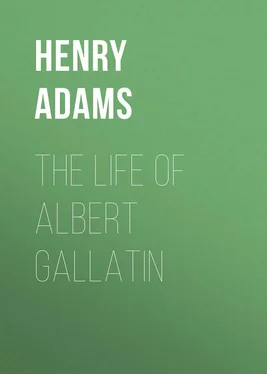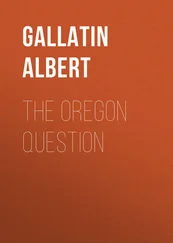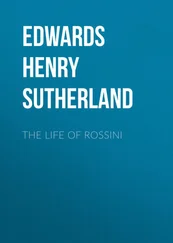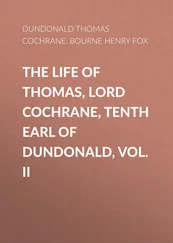Henry Adams - The Life of Albert Gallatin
Здесь есть возможность читать онлайн «Henry Adams - The Life of Albert Gallatin» — ознакомительный отрывок электронной книги совершенно бесплатно, а после прочтения отрывка купить полную версию. В некоторых случаях можно слушать аудио, скачать через торрент в формате fb2 и присутствует краткое содержание. Жанр: foreign_antique, foreign_prose, на английском языке. Описание произведения, (предисловие) а так же отзывы посетителей доступны на портале библиотеки ЛибКат.
- Название:The Life of Albert Gallatin
- Автор:
- Жанр:
- Год:неизвестен
- ISBN:нет данных
- Рейтинг книги:4 / 5. Голосов: 1
-
Избранное:Добавить в избранное
- Отзывы:
-
Ваша оценка:
- 80
- 1
- 2
- 3
- 4
- 5
The Life of Albert Gallatin: краткое содержание, описание и аннотация
Предлагаем к чтению аннотацию, описание, краткое содержание или предисловие (зависит от того, что написал сам автор книги «The Life of Albert Gallatin»). Если вы не нашли необходимую информацию о книге — напишите в комментариях, мы постараемся отыскать её.
The Life of Albert Gallatin — читать онлайн ознакомительный отрывок
Ниже представлен текст книги, разбитый по страницам. Система сохранения места последней прочитанной страницы, позволяет с удобством читать онлайн бесплатно книгу «The Life of Albert Gallatin», без необходимости каждый раз заново искать на чём Вы остановились. Поставьте закладку, и сможете в любой момент перейти на страницу, на которой закончили чтение.
Интервал:
Закладка:
In April, 1795, he made an expedition through New York to examine lands with a view to purchase for the projected Geneva settlement. This expedition brought him at last to Philadelphia, where he was detained till August by the trials of the insurgents and by the business of his various joint-stock schemes.
… The more I see of this State the better I like Pennsylvania. It may be prejudice, or habit, or whatever you please, but there are some things in the western country which contribute to my happiness, and which I do not find here. Amongst other things which displease me here I may mention, in the first place, family influence . In Pennsylvania not only we have neither Livingstones nor Rensselaers, but from the suburbs of Philadelphia to the banks of the Ohio I do not know a single family that has any extensive influence. An equal distribution of property has rendered every individual independent, and there is amongst us true and real equality. In the next place, the lands on the western side of the river are far inferior in quality to those of Pennsylvania, and in the third place, provisions bear the same price as they do in New York, whence arises a real disadvantage for persons wishing to buy land; for the farmers will sell the land in proportion to the price they can get for their produce, and that price being at present quite extravagant and above the average and common one, the consequence is that the supposed value of land is also much greater. In a word, as I am lazy I like a country where living is cheap, and as I am poor I like a country where no person is very rich…
Philadelphia, May 6, 1795.… I arrived here yesterday, pretty much jolted by the wagon, and went to bed in the afternoon, so that I saw nobody till this morning… Hardly had I walked ten minutes in the streets this morning before I was summoned as a witness before the grand jury on the part of government, and must appear there in a few minutes…
8th May, 1795.… I wrote you that I was summoned on behalf of government. I am obliged to attend every day at court, but have not yet been called upon. I am told the bill upon which I am to be examined is not yet filled. I guess it is against Colonel Gaddis; but I have, so far as I can recollect, nothing to say which in my opinion can hurt him. You remember that Gaddis is the man who gave an affidavit to Lee against me. He came yesterday to me to inform me that he meant to have me summoned in his favor, as he thought my testimony must get him discharged. I did not speak to him about his affidavit, nor he to me, but he had a guilty look. I guess the man was frightened, and now feels disappointed in his hope that his accusing me would discharge him. The petty jury consists of twelve from each of the counties of Fayette, Washington, and Alleghany, and twelve from Northumberland, but none from Westmoreland. Your friend Sproat is one of them, Hoge another. All from Fayette supposed to have been always friendly to the excise, but I think in general good characters. All those of any note known to have been in general of different politics with us…
12th May, 1795.… The two bills for treason against Mr. Corbly and Mr. Gaddis have been returned ignoramus by the grand jury; but there are two bills found against them for misdemeanor, – against the first for some expressions, against the last for having been concerned in raising the liberty-pole in Union town. I am a witness in both cases, – in the case of Mr. Corbly altogether in his favor; in the other case my evidence will about balance itself… The grand jury have not yet finished their inquiry, but will conclude it this morning. They have found twenty-two bills for treason. Some of those against whom bills were found are not here; but I believe fourteen are in jail and will be tried. I do not know one of them. John Hamilton, Sedgwick, and Crawford, whom Judge Peters would not admit to bail, and who were released little before we left town, after having been dragged three hundred miles and being in jail three months, are altogether cleared, the grand jury not having even found bills for misdemeanor against them. After the strictest inquiry the attorney-general could send to the grand jury bills only against two inhabitants of Fayette, to wit, Gaddis and one Mounts; he sent two against each of them, one for treason and one for misdemeanor. In the case of Mounts, who has been in jail more than five months, and who was not admitted to give bail, although the best security was offered, not a shadow of proof appeared, although the county was ransacked for witnesses, and both bills were found ignoramus . And it is proper to observe that the grand jury, who are respectable, were, however, all taken from Philadelphia and its neighborhood, and, with only one or two exceptions, out of one party, so that they cannot be suspected of partiality. In the case of Gaddis the bill for treason was returned ignoramus ; the bill for misdemeanor was found. So that the whole insurrection of Fayette County amounts to one man accused of misdemeanor for raising a pole. I can form no guess as to the fate of the prisoners who are to be tried for treason, and whether, in case any are found guilty, government mean to put any to death. There is not a single man of influence or consequence amongst them, which makes me hope they may be pardoned. There is one, however, who is said to be Tom the Tinker; he is a New England man, who was concerned in Shay’s insurrection, but it is asserted that he signed the amnesty. I have had nothing but that business in my head since I have been here, and can write about nothing else…
26th May, 1795.I believe, my dear little wife, that I will not be able to see thee till next week, for the trials go on but very slowly; there has been but one since my last letter, and there are nine more for high treason, besides misdemeanors. I am sorry to add that the man who was tried was found guilty of high treason. He had a very good and favorable jury, six of them from Fayette; for, although he is from Westmoreland County, the fact was committed in Fayette… There is no doubt of the man [Philip Vigel] being guilty in a legal sense of levying war against the United States, which was the crime charged to him. But he is certainly an object of pity more than of punishment, at least when we consider that death is the punishment, for he is a rough, ignorant German, who knew very well he was committing a riot, and he ought to have been punished for it, but who had certainly no idea that it amounted to levying war and high treason…
1st June, 1795.… Those trials go still very slowly, only two since I wrote to you; the men called Curtis and Barnet, both indicted for the attack upon and burning Nevil’s house, and both acquitted; the first without much hesitation, as there was at least a strong presumption that he went there either to prevent mischief or at most only as a spectator. The second was as guilty as Mitchell, who has been condemned, but there were not sufficient legal proofs against either. The difference in the verdict arises from the difference of counsel employed in their respective defences, and chiefly from a different choice of jury. Mitchell was very poorly defended by Thomas, the member of Senate, who is young, unexperienced, impudent, and self-conceited. He challenged (that is to say, rejected, for, you know, the accused person has a right to reject thirty-five of the jury without assigning any reason) every inhabitant of Alleghany, and left the case to twelve Quakers (many of them probably old Tories), on the supposition that Quakers would condemn no person to death; but he was utterly mistaken. Lewis defended Barnet, made a very good defence, and got a jury of a different complexion; the consequence of which was that, although the evidence, pleadings, and charge took up from eleven o’clock in the forenoon till three o’clock the next morning, the jury were but fifteen minutes out before they brought in a verdict of not guilty. Brackenridge says that he would always choose a jury of Quakers, or at least Episcopalians, in all common cases, such as murder, rape, etc., but in every possible case of insurrection, rebellion, and treason, give him Presbyterians on the jury by all means. I believe there is at least as much truth as wit in the saying… I have drawn, at the request of the jury who convicted Philip Vigel, a petition to the President recommending him as a proper object of mercy; they have all signed it, but what effect it will have I do not know, and indeed nobody can form any conjecture whether the persons convicted will be pardoned or not. It rests solely with the President…
Читать дальшеИнтервал:
Закладка:
Похожие книги на «The Life of Albert Gallatin»
Представляем Вашему вниманию похожие книги на «The Life of Albert Gallatin» списком для выбора. Мы отобрали схожую по названию и смыслу литературу в надежде предоставить читателям больше вариантов отыскать новые, интересные, ещё непрочитанные произведения.
Обсуждение, отзывы о книге «The Life of Albert Gallatin» и просто собственные мнения читателей. Оставьте ваши комментарии, напишите, что Вы думаете о произведении, его смысле или главных героях. Укажите что конкретно понравилось, а что нет, и почему Вы так считаете.












